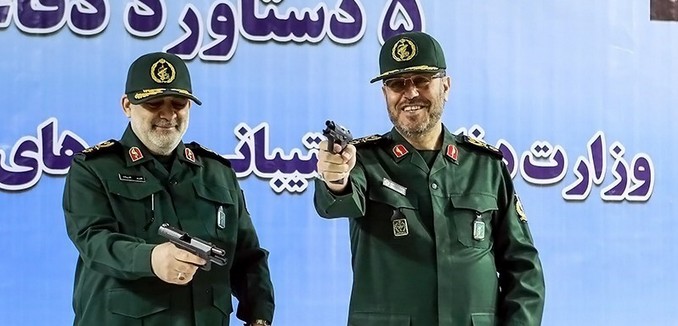Iran has issued threats to two nearby nations in recent days, further indicating that it is a destabilizing force in the region.
Saudi Arabian Defense Minister, Prince Mohammed bin Salman, said in an interview, carried by several Saudi networks, that Iran seeks “to take over the Islamic world.”
In response, his Iranian counterpart Gen. Hossein Dehghan said to Al Manar television, “We recommend them (Saudis) not to make any ignorant moves, but if they do, we will not leave anywhere intact except (Muslim holy cities of) Mecca and Medina.”
In another incident, following a recent border attack that killed ten Iranian border guards, Iranian Gen. Mohammad Hossein Bagheri, the army’s chief of staff, made a veiled threat against Pakistan.
According to Iranian state television, Bagheri warned that Iran would seek the “terrorists, wherever they are,” hinting that Iran would consider attacking Pakistani territory.
The threats against Saudi Arabia and Pakistan come in the wake of Iranian declaration to continue and increase its involvement in Syria.
Gen. Mohammad Pakpour, the commander of Iran’s Islamic Revolutionary Guard Corps (IRGC) ground forces said last week that Iran was prepared to continue sending troops to Syria to support the regime of Bashar al-Assad. The Syrian Civil War, thus far, has killed an estimated 500,000 people and driven millions of others from their homes.
Papkour made his announcement following the warning of the United States National Security Advisor Gen. H. R. McMaster. McMaster stated that Iran was seeking to destabilize the Middle East using the “Hezbollah model,” which consists of sending Iranian controlled militias to support weak governments.
Last month, other top U.S. officials, including the U.S. Ambassador to the United Nations Nikki Haley, Secretary of State Rex Tillerson and Secretary of Defense James Mattis cautioned that Iran was cause of most of the instability in the Middle East.
Furthermore, Iran’s increasingly aggressive behavior in recent years has confirmed predictions made two years ago by experts as diverse as Foreign Policy editor David Rothkopf; former State Department official Aaron David Miller; Washington Institute of Near East Policy fellows Mehdi Khalaji, Soner Cagaptay, and James Jeffrey; and former Secretaries of State Henry Kissinger and George Shultz, all of whom warned in 2015 that the nuclear deal would stoke Iran’s regional ambitions rather than moderate its behavior.
Kissinger and Shultz specifically warned that sealing the nuclear deal, but failing to address Iran’s aggression, would “[risk] empowering Iran’s hegemonic efforts.”
[ Photo: Tasnim News ]




